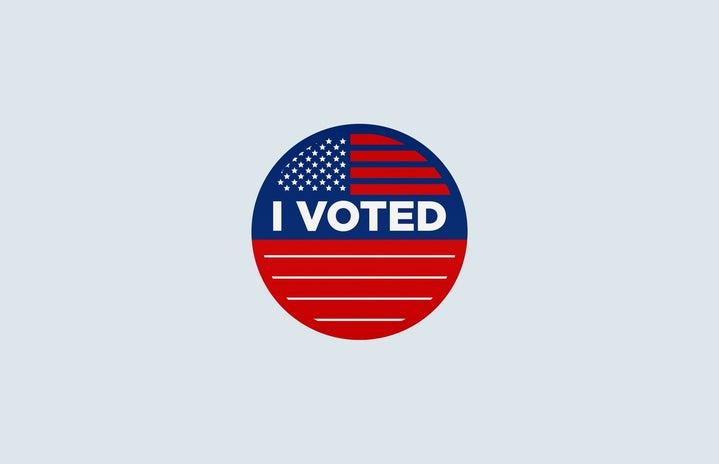There are less than two weeks until the 2020 United States Presidential election. I am far from the first one to remind you, and I hope I will not be the last, but if you have not already done so vote! For many of us, this is the first time we are eligible to vote in a Presidential election and we cannot let our civic duty be lost or neglected! Voting is not the final solution nor the final action, but it does largely influence our next decade, so please, vote.
Regardless of the outcome of the election, we will all experience a mix of emotions in the days to follow, a loss of hope, euphoria, excitement, determination, defeat, and many more. When these emotions hit you, an overwhelming feeling of drowning hits and it is not easily escaped. As someone who was extremely politically active and engaged from 14-years-old living in a swing-state, burnout came quickly for me following the 2016 Presidential election. In many ways, I am still getting over it.
Burnout is overwhelming and difficult to avoid, stepping away for even a moment especially when it is a cause that personally impacts you or you believe to be incredibly important is not easy. Some things help in taking a step back for a moment and will ultimately make the large-scale goal more attainable. So, how exactly do you avoid political burnout and make your activism sustainable?
- Determine what your goals are and specific causes that you want to support. If you spread yourself too thin over many causes, you are going to burn out in the imminent future. By identifying a few causes that are of the utmost importance to you and focusing your energy on them, not only will you become more of an expert on the cause, but you will also be more likely to be able to sustain your activism in the long-run.
- Take small steps and remember the positive. Although small steps may not feel like a lot of progress is being made at the moment, it is more effective to do a little bit every day and it will feel more tangible and effective sooner. When reflecting on what you have done, always list the positives of the action and its impact before thinking of the negatives; your mindset has a lot to do with the effectiveness of your long-term activism.
- Practice mindfulness and remember it is okay to take a break. Find what makes you happy, taking time off, spending time with loved ones, exercising, baking, reading, whatever it is, do it when you need to and do not feel guilty about doing so. Some people find solace in running or yoga, I love to bake some delicious desserts and enjoy them; it takes time, concentration, and yields a delicious result!
- Find a community of activists or like-minded people that you can identify with and keep in contact with them. For some, this may come easier dependent on where you live and what means of connecting you have accessible. Personally, after moving around and away from a swing-state, I found it much easier to connect with others and find solace in not constantly being put into upsetting and degrading conversations. No longer having to engage in daily debates over topics I did not perceive to be political or anyone’s business, I lived in North Carolina during the time of the infamous House Bill 2, improved my mental health. This, however, is not accessible for everybody, so finding an online forum, making a Twitter group chat, following Instagram accounts you find uplifting, or other virtual fields are ultimately helpful in connecting and engaging with people who will motivate you and help you through all aspects of your life.
If you feel yourself getting burnt out or losing motivation, remember that it is okay to take a break and focus on yourself. Activism is important and is an integral part of many people’s lives, but it is a long-term commitment and exhausting all of your dedication now is not effective. Stay active, stay engaged, vote in November if you are eligible, or earlier, and make sure that you are well cared for, you deserve it!


